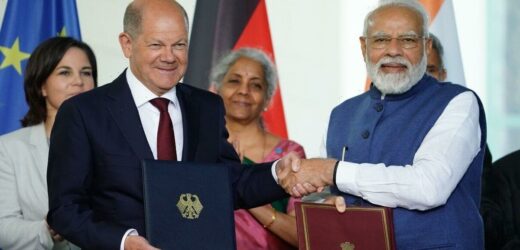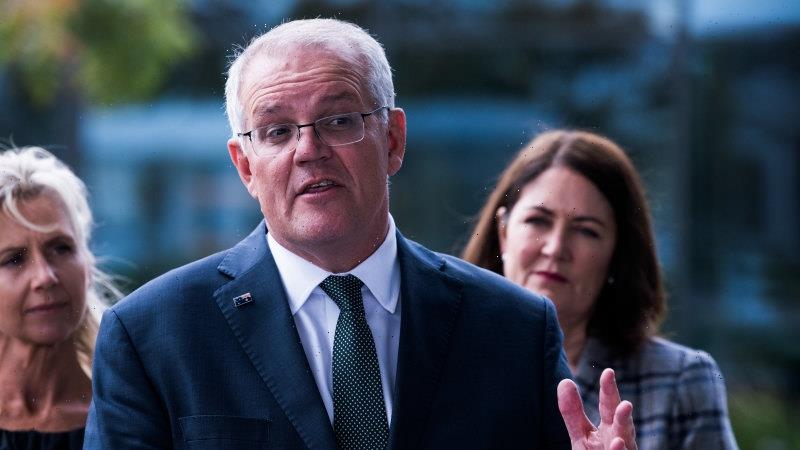Germany's reliance on Russian gas addressed by Eva Maydell
We use your sign-up to provide content in ways you’ve consented to and to improve our understanding of you. This may include adverts from us and 3rd parties based on our understanding. You can unsubscribe at any time. More info
Berlin has signed a cooperation agreement with New Delhi for a German-Indian hydrogen collaboration following multiple rounds of consultations. Germany is looking to import a new kind of molecule, mainly used in industry and chemical processes as an alternative to gas and oil, to create green hydrogen. Green hydrogen is created by splitting water into hydrogen and oxygen through a process called electrolysis and is viewed as a renewable source that can play an increasingly important role in the clean energy transition.
Germany’s Minister of Economic and Climate Affairs Robert Habeck said: “The expansion of green hydrogen production and application will serve the common long-term goal of driving the ramp-up of green hydrogen, making it commercially viable.”
“As part of our energy partnership with India, we have agreed to work together in more depth on developing innovative solutions for sustainable green hydrogen production.
“An important milestone in reducing our dependence on fossil fuels
The ministry also noted in a press release that India looks set to become a global player in exporting green hydrogen.
India had announced plans to become a “global hub” for green hydrogen back in 2021.


The agreement will see a task force set up to promote the creation of a close network between Government, industry and research institutes of both countries.
It will also lay out a roadmap with specific joint measures to allow for the market to ramp up green hydrogen.
This comes as the EU looks set to slap down an oil embargo on Vladimir Putin amid the Ukraine war in a sixth sanctions package.
Germany had previously been reluctant to back energy sanctions on Russia, arguing that it would be too damaging for its economy to slash ties.

But now, Berlin has said it is ready to immediately ban Russian oil in a major shift from its former position.
In an update on energy security on Sunday, the German Economy Ministry said the country imported 35 percent of its crude oil from Russia in 2021, but has managed to slash that to 12 percent in recent weeks.
Mr Habeck added “We have managed to reach a situation where Germany is able to bear an oil embargo.”
And as part of the EU’s new energy strategy, REPowerEU, a focus appears to be placed on replacing Russia’s fossil fuels with renewable alternatives.
DON’T MISS
Putin outsmarts EU as oil still being delivered via backdoor route [REPORT]
VDL faces nightmare as EU rebels refuse to back sanctions [INSIGHT]
Energy crisis: UK opens North Sea taps to SLASH household bills [REVEAL]


European Commission President Ursula von der Leyen said in a statement: “The quicker we switch to renewables and hydrogen, combined with more energy efficiency, the quicker we will be truly independent and master our energy system.”
Germany already 43 percent of its electricity mix and is hoping to boost this with the help of hydrogen as it weans itself off Putin’s energy supplies.
In the country’s hydrogen strategy, the Government identifies a demand of 90-110 terawatt-hours of climate-neutral hydrogen by 2030.
And an additional 5GW will be built by 2035-2040.
Source: Read Full Article


